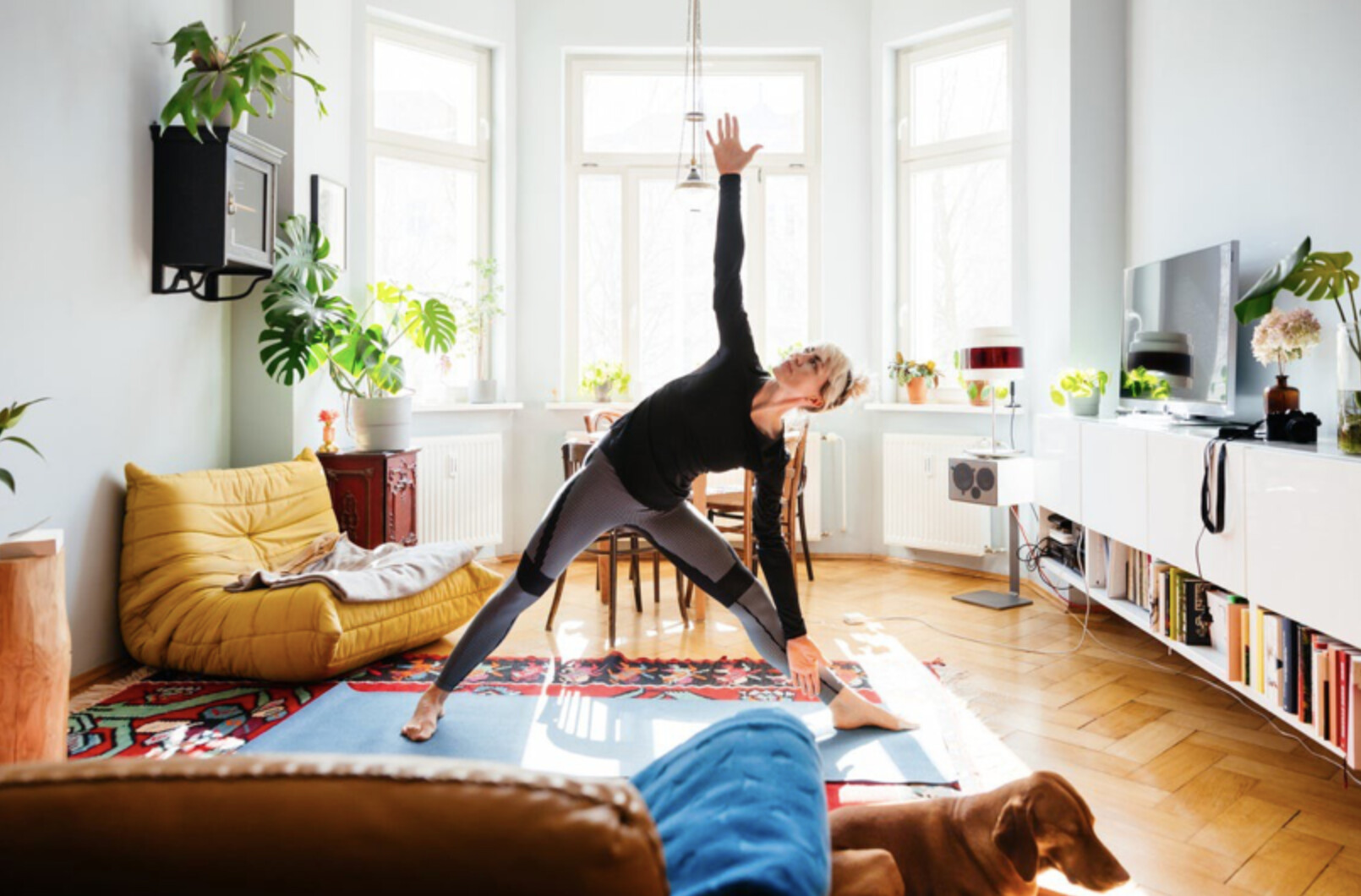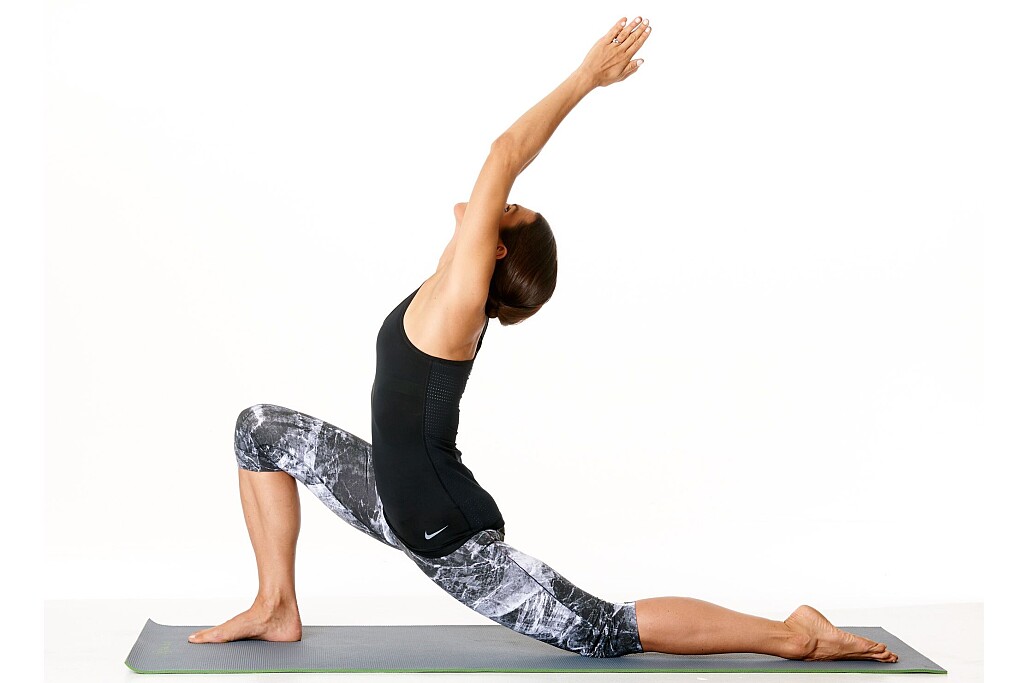Running News Daily
Running News Daily is edited by Bob Anderson. Send your news items to bob@mybestruns.com Advertising opportunities available. Train the Kenyan Way at KATA Kenya and Portugal owned and operated by Bob Anderson. Be sure to catch our movie A Long Run the movie KATA Running Camps and KATA Potato Farms - 31 now open in Kenya! https://kata.ke/
Index to Daily Posts · Sign Up For Updates · Run The World Feed
Does Yoga Improve Running Performance? Here's The Science.
Stand up with your feet under your hips. Bring your hands together in front of your chest. Breathe in, and as you exhale release all of the tension you brought into this article. Open yourself to the possibilities of the paragraphs ahead.
Now buy a friend a gift from all of our sponsors.
What? No? Oh I think I got mindfulness confused with hypnosis.
I think many athletes feel like yoga practices can be a whole lot of psychological hooey, an unproven gumbo of faux-spirituality and stretching that is more placebo than prescription. "Give me the evidence," they'll say. When presented with people saying how much better it makes them feel, that becomes more anecdata to incinerate in a bonfire. Double-blind controls or GTFO.
I used to lump yoga and hypnosis and healing crystals into the same hooey pile. But when I was in college, before I became a coach, I decided to take an intro yoga class for a Physical Education credit. In case you were wondering, that's what six figures of student-loan debt went to. Shockingly, that very expensive yoga class may have been the most important experience I had in college.
I sucked at it. But with time I got a bit more proficient. I learned to control my anxiety, first related to the class itself, then outside of class. And that coincides with the window when my running started improving too.

Now, I have no idea what that was measuring. I am so susceptible to the placebo effect that if you gave me a sugar pill with confidence, I'd get high as a kite and maybe be able to read minds. At the very least, the yoga class opened my mind to the potential benefits of a focused practice.
While I fell away from yoga practice over time, I have seen plenty of athletes use yoga to complement their running schedule and have great success. So what are we seeing? Correlation? Causation? A shared sugar-pill delusion? Let's break it down into its component parts before considering the few studies on yoga specifically.
Stretching
Yoga can mean a lot of different activities, but most of the movements involve some sort of stretching. A 2012 article in the International Journal of Sports Physical Therapy laid out the basics: stretching generally focuses on lengthening the musculotendinous unit, increasing the length between the muscle origin and insertion. Muscle length has an inverse relationship with muscle tension/stiffness, a way to describe biomechanical and neuromuscular factors that affect how muscles contract (this book excerpt from Plyometric Anatomy has more).
Now imagine the tension like a trampoline. Too little tension, and you could picture flopping down lazily and having little energy return. Too much tension, and you'd fall on what amounts to a brick wall. Each athlete will likely have an optimal level for injury risk and performance that varies a ton by the person and over time.
To summarize the numerous studies, the basic conclusion is that stretching before activity reduces running economy, like kids playing on a used trampoline, wishing their parents didn't spend six figures on college yoga classes. A 2015 review study in the Applied Physiology, Nutrition, and Metabolism journal pegged pre-activity static stretching as a 3.7-percent reduction in subsequent running economy. Meanwhile, dynamic stretching improved performance slightly. That study found no change in injury rates. A 2017 review study in Research in Sports Medicine found no settled science on whether post-activity stretching affects performance. The jury is also out on injury risk.
At the very least, the yoga class opened my mind to the potential benefits of a focused practice.
Notably, most of those studies measure basic stretches in a lab for force-generating muscles. Maybe flow or core-oriented stretches would have different outcomes, more like the dynamic stretches. Plus there is variance across studies and for individual participants within studies. That raises the big question of studies generally: what are we actually measuring?
A good example might be this 2009 study in the Journal of Strength And Conditioning Research, which found that collegiate distance runners who were less flexible tended to be more economical. Read that together with research that has posited that flexibility has a large genetic component, and that genetically inflexible athletes may have better economy. Possibly a genetically inflexible athlete could stretch and still be rather inflexible, yet with good running economy (or maybe not). So maybe we're measuring individual genetic predisposition and responses rather than uniform physiological rules. It probably benefits older athletes more as well, since range of motion can decrease over time.Strength
Yoga often includes bodyweight-strength elements that could play a role in performance. You can think of the mechanisms without me listing them out. Every PT says you need to activate your glutes, and yoga is all about those buns, babyyy. Pros do core work, and I wouldn't be surprised if yogis plank in their sleep. Yoga could theoretically strengthen everything that matters and many of the things that don't.
Maybe a good way to isolate that unique brand of strength is by looking at pilates, which seems a lot like yoga but without as much stretching. A 2018 study in the PLoS One journal found that pilates improved 5K performance by over a minute more than a control condition during a 12-week training program. Note: there were no results reported on the status of those buns.
That study could be measuring something else too. The participants only did two sessions of running a week, so maybe pilates just filled in some major aerobic and fitness gaps that could have been filled in with running or cross training. Or maybe I should stop being such a buzzkill.
Numerous studies support different types of strength work for running economy improvements and injury prevention. Whether yoga overlaps with that would probably require more studies on specific approaches, and who has time for that when you can watch season 2 of Fleabag for the eighth time? Hot Priest is the gift that keeps on giving. And that ending? Trust me, it's worth it.
Psychology
There are also components of mindfulness, brain chemistry and social support that could play a major role in possible yoga benefits. For example, this 2014 study from the Psychology of Consciousness journal found that a yoga and mindfulness intervention in a division 1 NCAA sports team resulted in greater mindfulness, greater goal-directed energy and less perceived stress.
Let's just take it as a given that there will be a slight mental benefit for people that enjoy yoga, maybe a slight detriment for people that don't enjoy it and definitely a major catastrophe for people that are allergic to Lulu pants.
That's backed up by this 2015 systematic review in the Journal of Clinical Sports Psychology that found mindfulness had significant benefits across the literature. Let's just take it as a given that there will be a slight mental benefit for people that enjoy yoga, maybe a slight detriment for people that don't enjoy it and definitely a major catastrophe for people that are allergic to Lulu pants.
Give Me the Yoga Science
Somewhat surprisingly, I can't find definitive studies on yoga practice and running performance. Maybe I'm missing something, but even if there were performance studies, it would probably depend heavily on the type of yoga practice and it would be difficult to make broadly applicable conclusions.
A 2006 study in the British Journal of Sports Medicine found that participants assigned to do brief yoga exercises improved performance over a control group. There were 11 entry-level yoga asana positions: mountain pose, asana 2, forward bend, lunge, plank, staff, upward facing dog, downward facing dog, lunge return, mountain pose return and breath of fire.
But and please read this sentence slowly the yoga group improved less than the group that stood around in a circle for nine minutes and screamed motivational phrases at each other. The example given in the article is: "You're the definition of speed!" I just took a DNA test and it turns out I am 100-percent in love with that study.
Hot yoga could have additional benefits, but again not too much on runners specifically. A 2018 study in the Journal of Strength and Conditioning Research had 10 international-caliber field-hockey players do six days of hot yoga and they had a five-percent increase in blood-plasma volume and a slight speed increase at ventilatory threshold.
A 2012 study found that yoga practice increased adherence to other forms of exercise in previously sedentary adults. Maybe that's relevant. I'm really grasping at straws here.
Hey, while we're looking for scientific studies, this one from 2010 says it could improve male sexual function and this one says it could improve female sexual function. This is what happens when you search for "yoga and performance."Putting It All Together
My hypothesis is that the strength and mindfulness (and heat if applicable) components of yoga are likely helpful for many athletes. The stretching element likely depends heavily on genetics and practice type. I used the word "hypothesis" because it sounds better than "throwing darts at a guess board."
Tons of athletes swear by yoga, and I think they are almost certainly right for them. Yoga can provide strength, it can make you aware of imbalances, it can improve body awareness and body image. That's great, and if you are looking for a change, consider adding a yoga practice a couple of times a week, especially if you have dealt with injuries or burnout. Some of the athletes I coach swear by Fightmaster Yoga, which has free videos on Youtube. Or even better, join a class for the social support and guidance. Monitor how you feel over a couple months and make changes as needed.
But way more important than that performance stuff, yoga can make some people happier. If yoga makes you happy, I promise that it will be good for your running life no matter what any study says.
If we're thinking about raw performance variables, adding 10 easy miles per week while staying happy and healthy is probably going to give you a bigger boost. But way more important than that performance stuff, yoga can make some people happier. If yoga makes you happy, I promise that it will be good for your running life no matter what any study says.
by Trail Runner Magazine
Login to leave a comment




